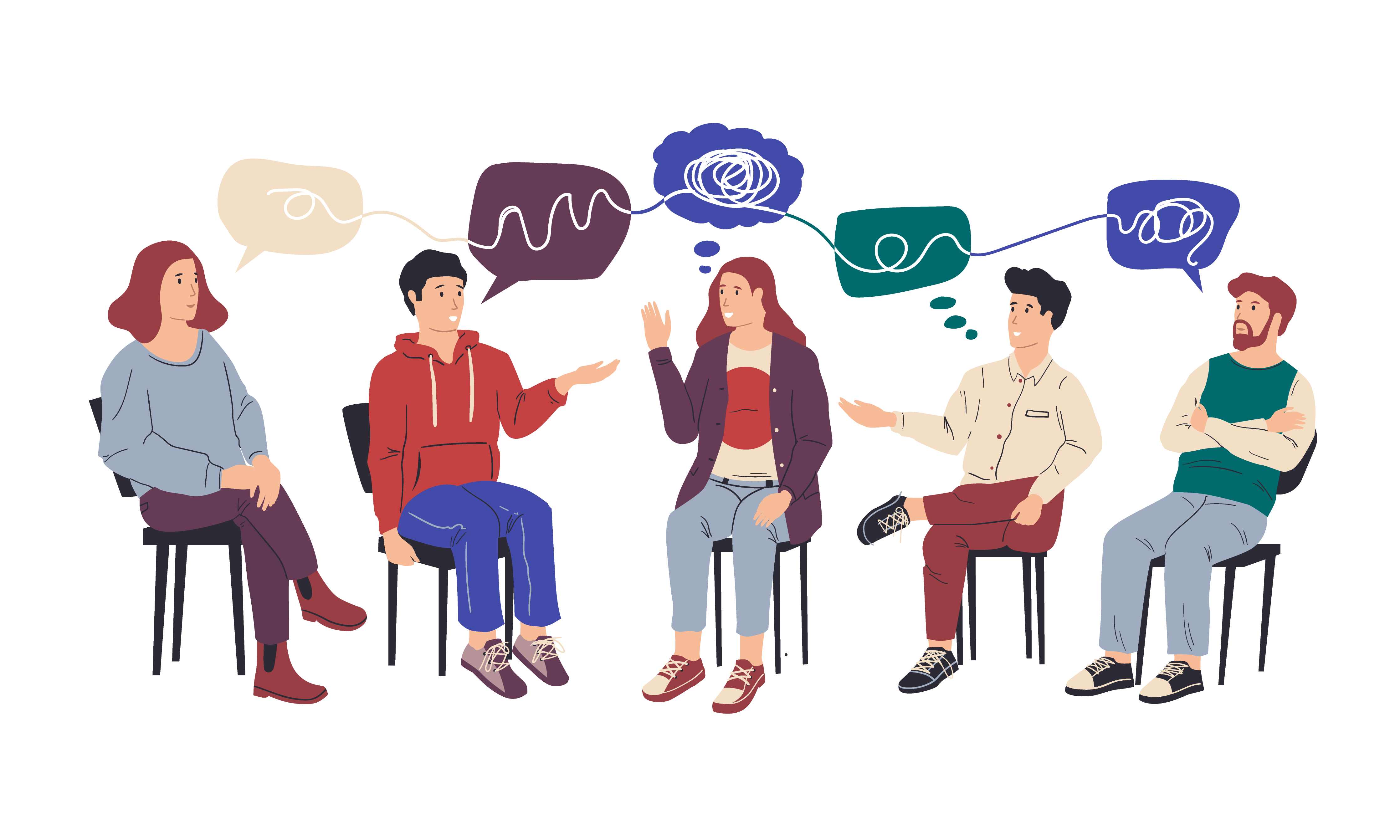Open Dialogue
Therapeutic support through the chosen support network
Open Dialogue

Learn more
Open Dialogue began over 40 years ago as a way to organize psychiatric care services in Western Lapland, a specific area of Finland. It has proven to be very effective in situations that were perceived as serious and urgent.
Key elements:
Immediate help
The fundamental principle is to offer psychological support without delay. When a crisis arises, a rapid response is prioritized to address it at the moment when the person needs it most, promoting proactive initial intervention.
Social network perspective
The focus is on the person in crisis within the context of their network of relationships. Family, friends and other relevant figures are invited to be part of the process, considering that the crisis affects the entire social system and not just the individual.
Flexibility and mobility
Interventions are tailored to the particular needs of each situation, both in content and structure. Meetings can take place at home, in the community, or wherever is most convenient for those involved.
Responsibility
The therapeutic team assumes full responsibility for coordinating and providing ongoing support. Responsibility is not transferred to other services or professionals without ensuring continuity and coherence.
Psychological continuity
The same network of professionals is maintained throughout the entire process, establishing a stable and reliable relationship with the person and their network. This continuity fosters a secure bond and facilitates the therapeutic process.
Tolerance to uncertainty
We work with patience and acceptance, allowing the solution to emerge over time. The intervention does not seek immediate answers, but rather accompanies people in managing the crisis without haste.
Dialogue (and polyphony)
Open dialogue is central: all voices, opinions and emotions of those involved are heard and valued. This polyphony creates a space for co-creation, where meanings are shared and joint solutions are built.
How to get started
Invite to the network
Invite people to the meeting who you believe are an important part of the process.
Search date
We will all look for a date for the meeting, which varies depending on the needs.
Location
The session can be at home or in the meeting room that we can provide.
Frequently asked questions
Is it incompatible with other psychiatric and psychological treatments or interventions?
On occasion, we can collaborate, if it’s proposed by the participants, with therapeutic staff who conduct individual meetings separate from ours, always with maximum transparency and consent towards all the people who participate. In general, there is no incompatibility with other interventions.
Who can benefit from Open Dialogue?
Open Dialogue has been used effectively among people experiencing severe crises of psychological distress or other emotional difficulties. It is also effective for families or support networks facing significant relationship or mental health challenges.
What is a typical Open Dialogue session like?
A session typically includes the person in crisis, their support network, and two mental health professionals. Open communication is encouraged where all voices are heard. Professionals act as facilitators of the dialogue, rather than directing it, allowing the group to co-create solutions and understandings.
How does the network get involved in the Open Dialogue?
The network can be family members, friends or other important people for support, they actively participate in the process from the beginning. They are considered essential participants in understanding and addressing the challenges that the person faces. Their perspectives and experiences are valued at the same level as those of the person considered to be in crisis. We can consider that the crisis is shared among all and try to move away from approaches based on one group intervening towards someone, but rather the intervention is for each person to talk about their own experience and give space for the other to find and share their words.
Contact